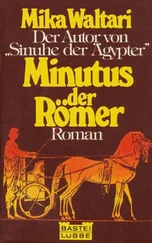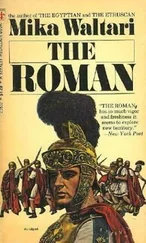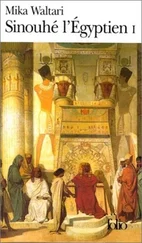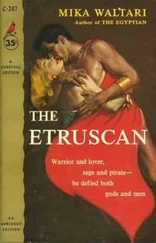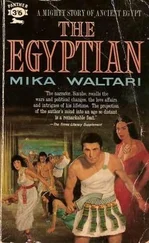To my great delight I saw that the reconquest of Tunis for Muley- Hassan would be no easy task even for the Emperor. Only by cunning and the incitement of the inhabitants to revolt had Khaireddin contrived to enter it, and even after Muley-Hassan’s flight there had been long and bloody street fighting before the people laid down their arms. The sturdy, defiant towers of La Goletta appeared impregnable and blocked the road that ran along the canal into the city, while numberless little lakes and poisonous swamps on either side of this canal made encirclement almost impossible.
Khaireddin received me with every sign of delight, embracing me like a long-lost son and entertaining me so lavishly that I began to fear the worst. He gave me no opportunity of speaking, but boasted loudly of his defenses and the savage lesson he would give the Emperor and Doria if they came too near Tunis. When I inquired how it was that his proud ships lay at anchor instead of sailing forth to engage Doria in open combat, he turned very sulky and asked for the latest news of the war in Persia and of Iskender-ta?/e£’.r execution, of which he had heard only the mendacious rumors of the Seraglio. Was it indeed true that Grand Vizier Ibrahim had gone out of his mind and ran about on all fours foaming at the mouth and chewing the carpets? To this I replied sharply that such a tale was nothing but malicious invention. Khaireddin listened attentively, stroking his beard, and I fancied I saw a guilty look in those prominent eyes of his, as of a child caught out in some misdeed. My misgivings increased.
The same evening, therefore, I sought out Abu el-Kasim, since Andy was outside the city directing the fortifications. Abu had bought himself a pleasant house with a walled garden and had so far overcome his avarice as to furnish it richly and buy a flock of slaves to wait upon his wife and son. Looking at him now it was easy to forget that he was nothing but a petty merchant who had made his fortune by adulterating drugs and inventing new names for age-old ointments.
Like a proud father he led the splendidly dressed Kasim forward to greet me, and seemed to imagine I had forgotten that the boy was not his son. Contrary to Moslem custom he allowed his Russian wife to approach me with only a thin veil over her face, hoping to elicit my admiration for her gorgeous clothes and jewels, beside which he looked like a gray spider.
Having sent wife and son back to the harem, Abu el-Kasim offered me wine and said in a worried tone, “Khaireddin’s janissaries and renegades are perhaps not the best shepherds in the world, and their manner of fleecing their sheep has aroused much discontent among the inhabitants of Tunis-above all among the old Arab families who under Tunisian sultans were members of the Divan and could manage the city as they pleased. A month or so ago a Spanish merchant arrived here. He seems to have no notion of the nature or value of his wares, and sells the most precious of them to chosen customers for a mere song in the hope of winning their favor. He sells spices and even perfumes without the least reference to the prices agreed upon among the merchants here, so you may judge of my indignation when I heard of him.”
Abu el-Kasim assumed an injured air and looked sideways at me as he sipped his wine.
“This Spaniard has in his service a Christian Moor who is far too much inclined to wander about after dark-not with sighs and a rose in his hand, but on visits to Muley-Hassan’s warmest adherents and other malcontents. From sheer curiosity I have had these two men shadowed and several times the Spaniard has openly visited the kasbah and offered merchandise to no less a man than Khaireddin. Not only that, but Khaireddin has had lengthy conversations with him in private. I’m prepared to wager that the foreigner is an Imperial agent and probably a Spanish nobleman, since he behaves so foolishly and has a Christian Moor for a servant.”
We talked far into the night, and next morning I betook myself to the harbor and went aboard the Spaniard’s ship on the pretext of buying a good Venetian hand mirror. When the Moorish servant informed his master that a wealthy and distinguished customer had arrived, the Spaniard hurried up on deck and greeted me with marked respect. From his features, hands, and bearing I saw at once that he had never grown up among drugs. He soon led the conversation round to world affairs, and when I told him that I had just arrived from the Seraglio in Istanbul to enter Khaireddin’s service, he displayed great eagerness to learn the latest news. I told him truthfully of the unrest in the Seraglio and of the suspicions concerning Grand Vizier Ibrahim, and of how, despite the capture of Bagdad, no one believed in a happy outcome to the war in Persia.
At this point in my narrative I abandoned truth for fiction and remarked that I had felt the time ripe for seeking a new master since no man, however perfect his integrity, could hope to escape the Grand Vizier’s morbid suspicions. From my complaints the Spaniard judged me to have committed some misdemeanor and escaped to Tunis beyond the reach of Ibrahim’s wrath. He at once invited me into his luxuriously appointed stateroom and asked me where I was born and how I had come to take the turban. As if in passing he mentioned that the Pope, on the Emperor’s recommendation, had recently permitted certain eminent renegades to be received again into the bosom of the Church. Because of the great services they had rendered the Emperor he had even pardoned them their falling away, without asking too many awkward questions.
Few words were needed, therefore, to bring us into perfect understanding, and the Spaniard now confided that his name was Luis de Presandes, that he had been born in Genoa, belonged to Charles’s personal suite, and enjoyed his full confidence in all the complicated affairs that were commonly placed in his hands. Charles was shortly to sail for Tunis with the mightiest navy ever seen. The patriotic inhabitants were ready to rise when the time came and support the Emperor, having had enough of the Turkish reign of terror; they longed for the noble Muley-Hassan, their rightful sultan. The wise man must trim his sails to the veering wind, and all the world knew the Emperor to be a just ruler; he would not forget any man who sincerely repented of past errors and now did his part for the good cause. But fearful would be the punishment for any renegade who persisted in denying his faith and serving the Turks.
In such words as these he sought both to lure and to frighten me, and in the name of Christ and His mother he exhorted me to recall the faith of my childhood, return to the Christian fellowship, and so win pardon for my grievous sin. He wept as he spoke and I too shed tears, being tenderhearted and ever susceptible to beautiful words. Nevertheless I would make no promises, nor would I accept the earnest money he offered me, for through Andy I had conceived the greatest respect for the articles of war and the binding nature of such payments. Yet we parted like bosom friends, and I promised to think over his proposal. I furthermore swore by Cross and Koran never to breathe a word of what he had said.
This oath put me in an awkward position, but his own missionary zeal inspired me with an idea. After only two days Abu el-Kasim succeeded in persuading Master Presandes’s Moorish servant to remember with a contrite heart the Moslem faith of his forefathers and, in terror of the hideous punishment that awaited apostates, disclose his master’s plots. Without breaking my promise I could thus confront Khaireddin and say, “What has the Kapudan-pasha of the High Porte to do with the secret emissary of the Emperor? What is in your mind, Khaireddin? Do you really believe the Grand Vizier’s arm is too short to reach you, even from Persia?”
Читать дальше

